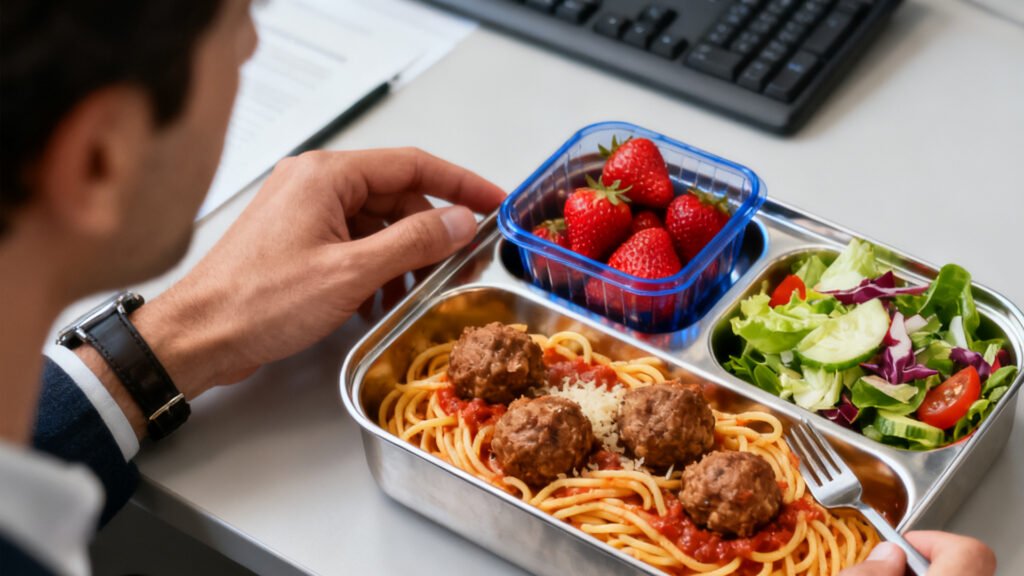
Contact Us through info@lovekonjac.com
Working from home can be convenient, but it also presents challenges, such as overeating. If you’re struggling with excessive snacking or maintaining a healthy diet, don’t worry. By implementing a few simple strategies, you can prevent overeating and establish a balanced lifestyle while working from home.

Working from home means being in close proximity to the kitchen, which makes it easier to access food throughout the day. The convenience of having snacks and meals readily available can lead to more frequent eating.
Working remotely can bring a sense of comfort, but it can also lead to increased stress levels. Some individuals may turn to food as a coping mechanism, seeking comfort or distraction from work-related pressures.
Working from home often comes with a less structured routine compared to a traditional office setting. Without set meal times and designated breaks, telecommuters may find themselves grazing on snacks or indulging in frequent meals throughout the day.
Monotony or moments of boredom during remote work can lead to mindless snacking. Procrastination can also trigger a desire for food as a form of distraction or entertainment.
Telecommuters may face emotional triggers while working from home, such as feelings of loneliness, anxiety, or isolation. These emotions can contribute to increased food consumption as a way to fill a void or seek comfort.
Without coworkers or supervisors nearby, individuals working from home may feel less accountable for their eating habits. This can lead to a more relaxed attitude towards food choices and portion control.
Being at home allows easy access to a wide range of food options, including unhealthy snacks or comfort foods. The presence of these tempting choices can contribute to overeating.
Consult with a healthcare provider or a registered dietitian before starting intermittent fasting to ensure it is suitable for you. This eating pattern can regulate your eating habits and promote weight management. Gradually increase your fasting window, aiming for 12-14 hours initially and eventually reaching 16 hours or longer. Intermittent fasting can lead to reduced cravings and improved concentration.

Incorporate Shirataki Noodles: Consider incorporating shirataki noodles into your meals. which promotes a feeling of fullness and prevents overeating. Glucomannan takes a long time to digest and it gently expands in the stomach, absorbing water in the intestines and thereby creating a gel-like substance. This gel-like substance doesn’t break down until it reaches the colon, effectively acting like a prebiotic fiber and bulking agent. By replacing regular rice and pasta with shirataki noodles, you can enjoy satisfying meals without experiencing blood sugar spikes.

Establish a specific area for work where you can focus solely on your tasks. Avoid eating in this space to maintain a clear separation between work and food.


Establish a routine with set meal and snack times. Stick to these designated times and avoid mindless snacking throughout the day. This structured approach helps regulate your eating habits and prevents excessive consumption.
Prepare healthy and balanced meals in advance, including breakfast, lunch, and snacks. This way, you’ll have nutritious options readily available, reducing the temptation to reach for unhealthy snacks.

Practice mindful eating by paying attention to your body’s hunger and fullness cues. Eat slowly, savor each bite, and listen to your body’s signals to stop eating when you feel satisfied. Portion control: Be mindful of portion sizes and avoid eating directly from the package. Use smaller plates and bowls to help control portion sizes visually.
Keep a variety of healthy snacks, such as fruits, vegetables, nuts, or yogurt, easily accessible. These options provide healthier alternatives to high-calorie and sugary snacks.

Sometimes, we mistake thirst for hunger. Stay hydrated by drinking plenty of water throughout the day. Keep a water bottle nearby and take regular sips to avoid unnecessary snacking.

Avoid eating while watching TV, working, or engaging in other activities. When you eat mindlessly, you’re more likely to overconsume without realizing it. Instead, make meals and snacks a dedicated and conscious activity.
Emotional eating is often triggered by stress or boredom. Find alternative ways to manage stress, such as taking short breaks for stretching, practicing deep breathing exercises, or engaging in a hobby you enjoy.
Seek support: If you’re struggling with overeating, consider seeking support from friends, family, or professionals. They can provide encouragement, accountability, and guidance on adopting healthier eating habits.

What do you do to stop overeating while working from home? Leave a comment…